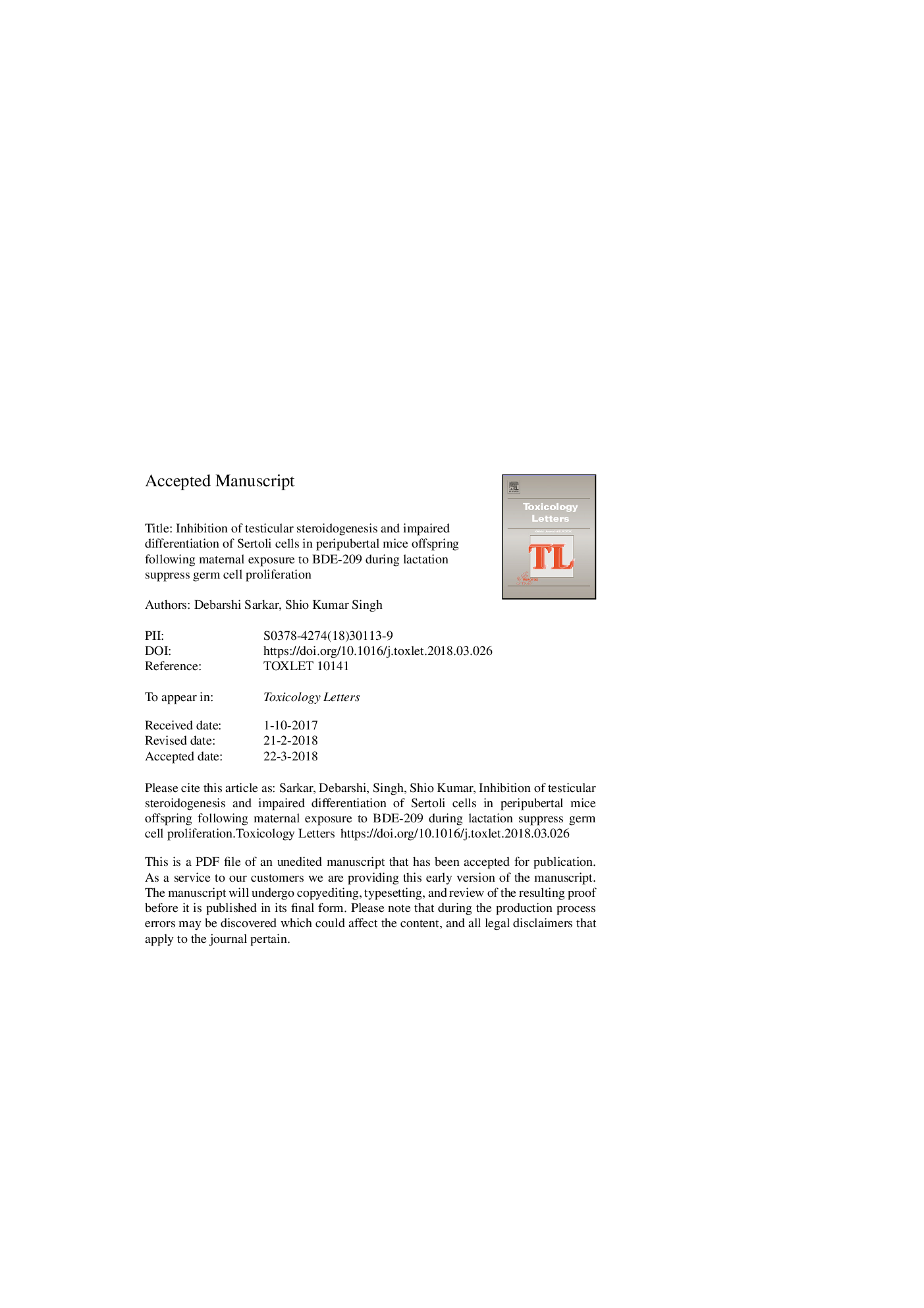| Article ID | Journal | Published Year | Pages | File Type |
|---|---|---|---|---|
| 8553293 | Toxicology Letters | 2018 | 33 Pages |
Abstract
Polybrominated diphenyl ethers (PBDEs) are used for fire prevention purpose. BDE-209, a congener of PBDEs, is thyroid hormones (THs)-disrupting chemical because of its structural similarity with THs. Testis is considered as THs-responsive organ and is more susceptible to chemical agents during peripubertal period. This study, therefore, evaluated the effect and possible mechanism(s) of action of maternal exposure to BDE-209 during lactation on germ cell proliferation, testicular steroidogenesis and on differentiation of Sertoli cells (SCs) in relation to altered THs status in peripubertal mice offspring. Lactating Parkes mice were gavaged with 500 and 700â¯mg/kg BW of BDE-209 in corn oil from postnatal day (PND) 1 to PND 28 along with 6-propyl-2-thiouracil (PTU)-treated positive controls and vehicle-treated controls. Male pups of lactating dams were sacrificed at PND 42. Maternal exposure to BDE-209 during lactation markedly affected testicular histopathology, germ cell proliferation and steroidogenesis with down-regulated expression of various steroidogenic markers in peripubertal mice offspring. Decreased expressions of maturational markers of SCs with a decline in serum THs levels were also evident in these offspring. Results thus suggest that maternal BDE-209 exposure during lactation impairs germ cell proliferation via inhibition of steroidogenic pathway and differentiation of SCs in peripubertal mice offspring.
Related Topics
Life Sciences
Environmental Science
Health, Toxicology and Mutagenesis
Authors
Debarshi Sarkar, Shio Kumar Singh,
